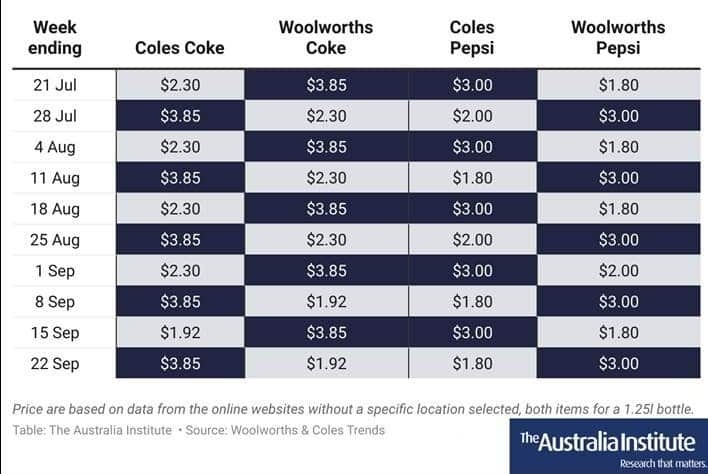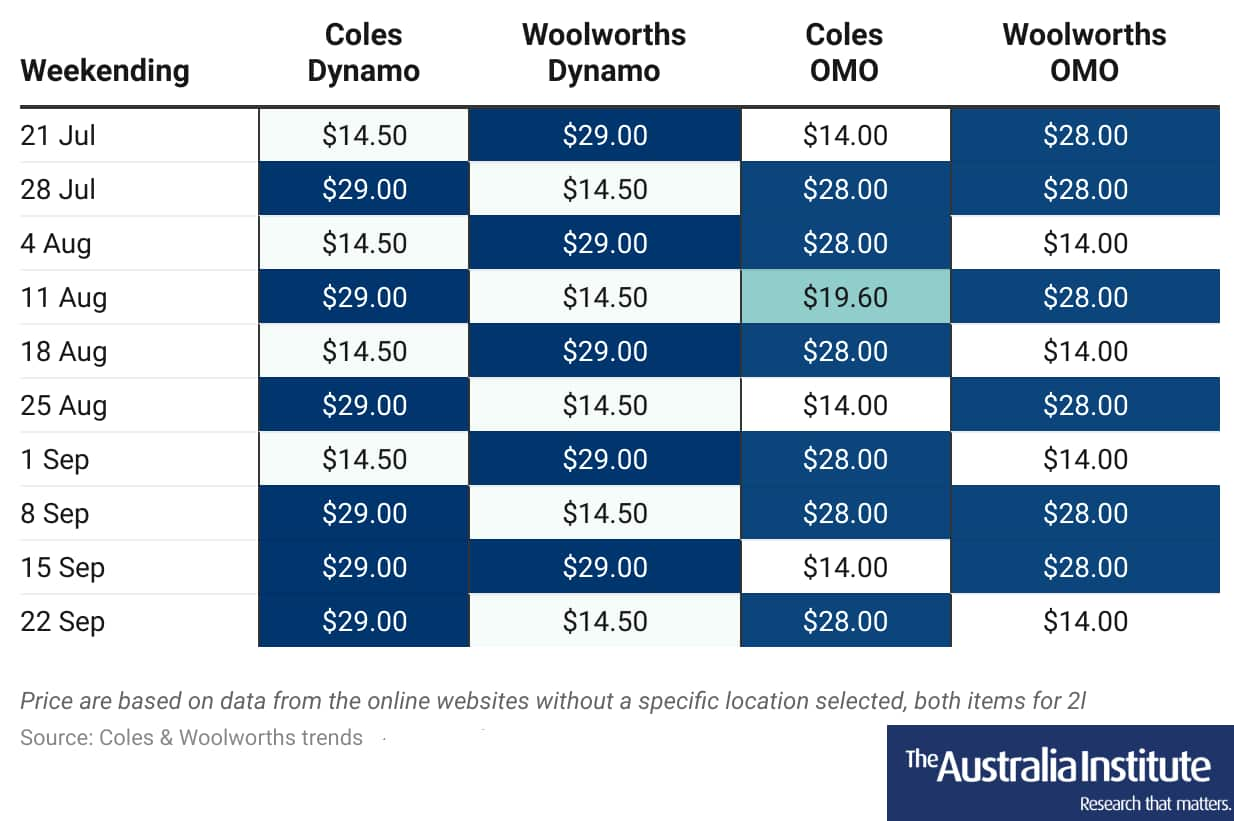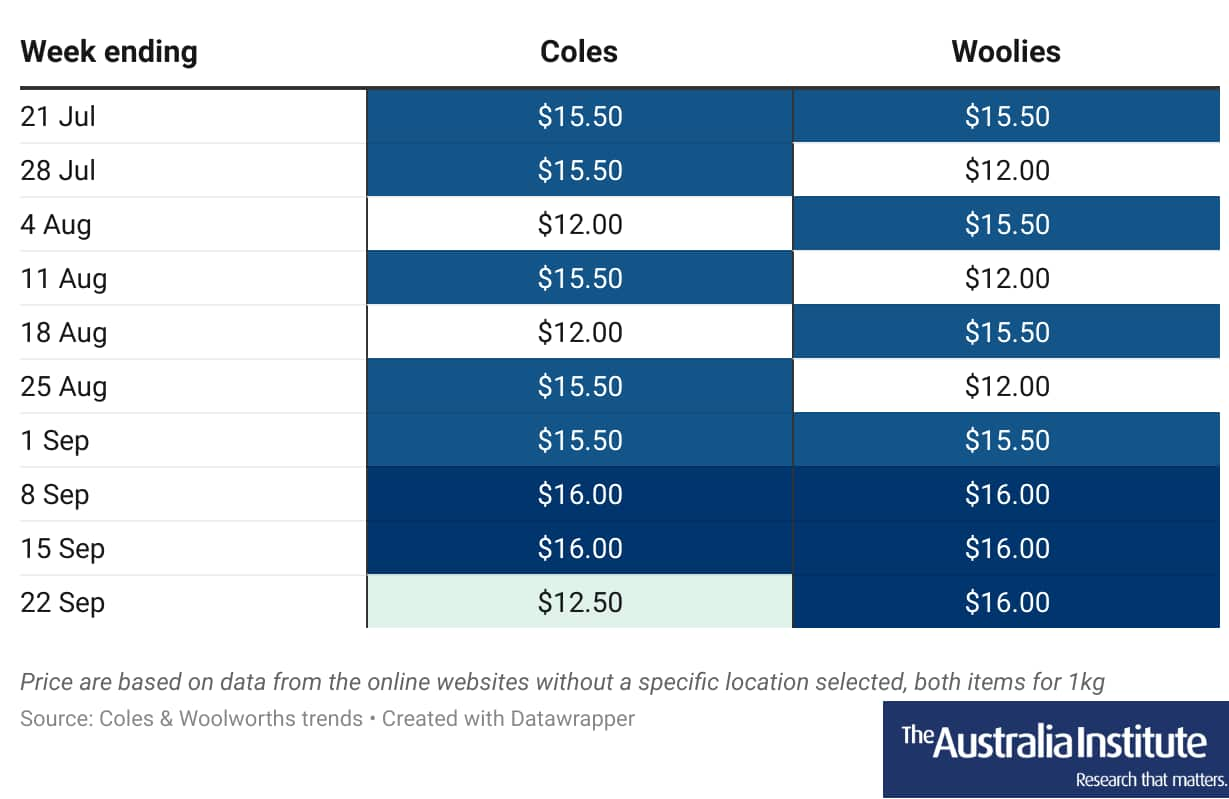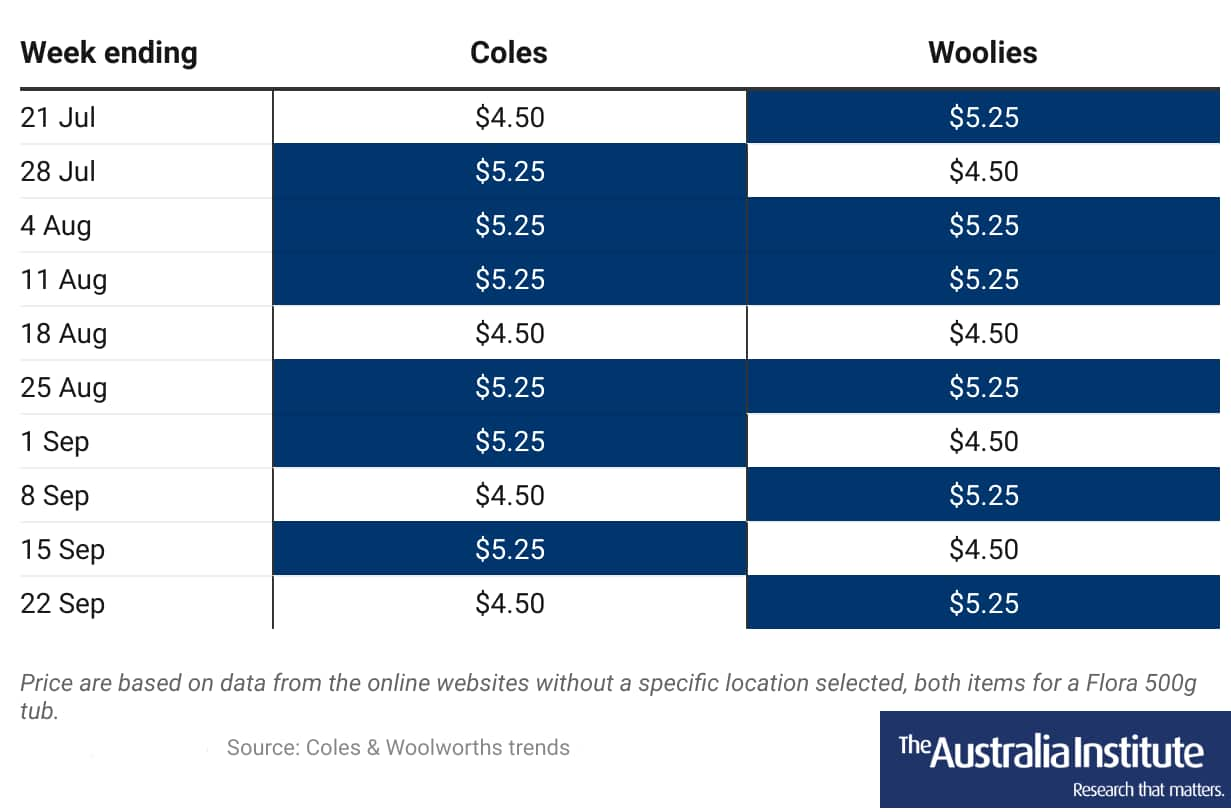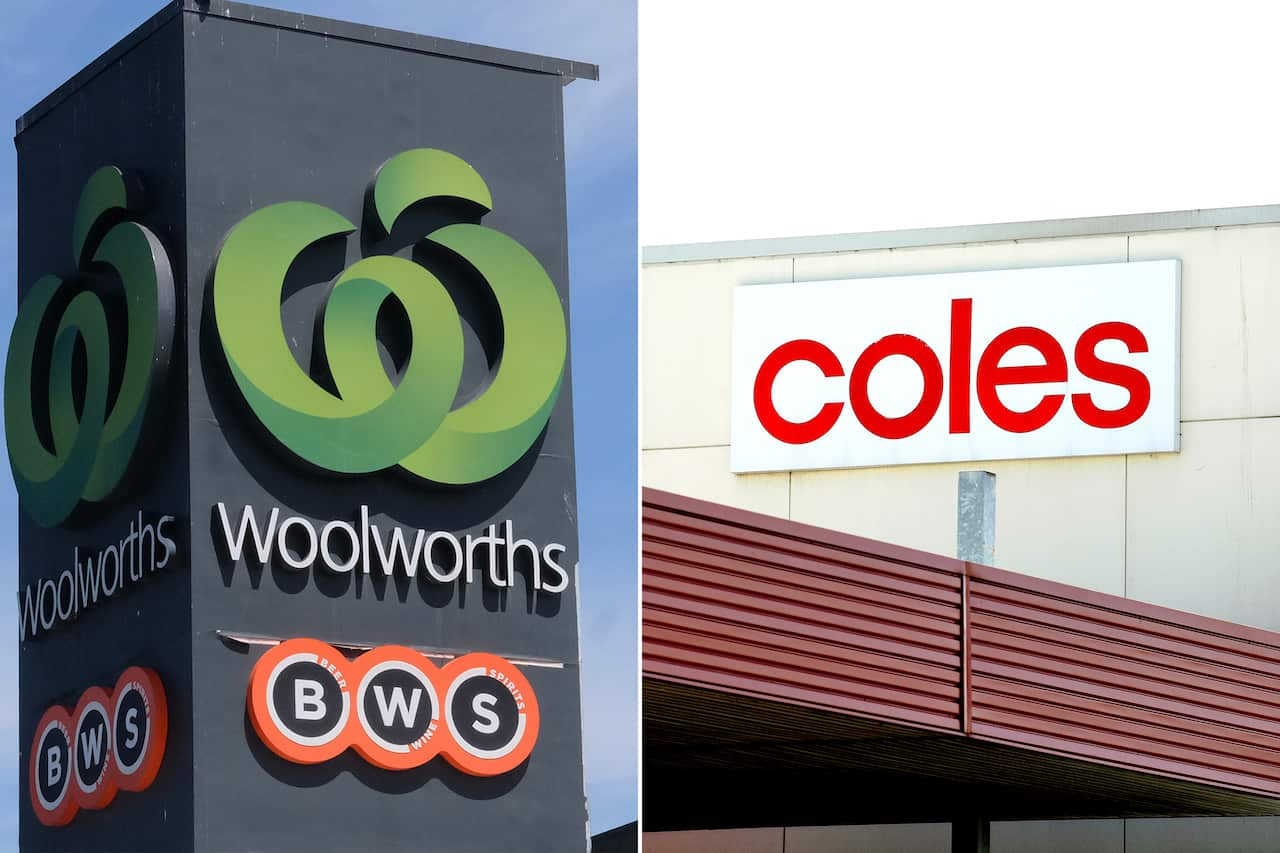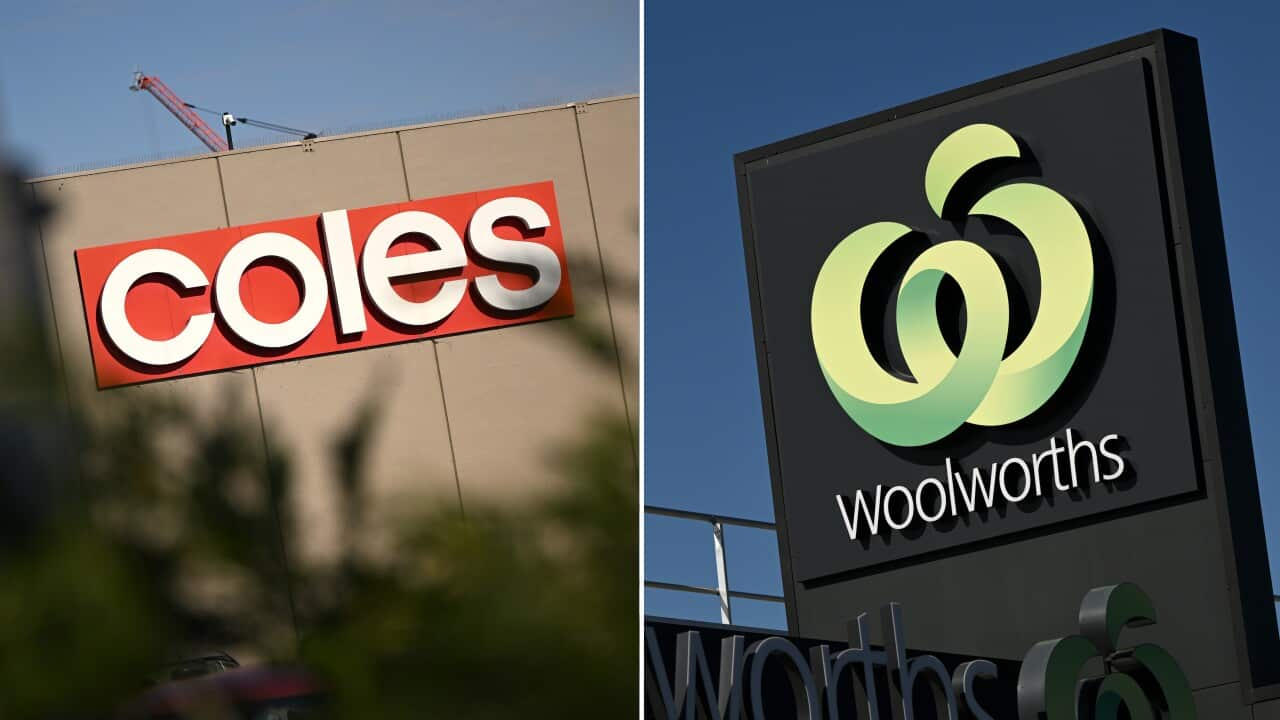Australia’s supermarket giants have been accused of a “secret pricing deal” that aims to keep their profit margins high through taking turns offering items on sale.
The claim made by progressive public policy think tank The Australia Institute this week comes after Australia’s consumer watchdog on Monday over their ‘Down Down’ and ‘Prices Dropped’ campaigns.
The Australian Competition and Consumer Commission (ACCC) alleges the supermarkets breached consumer law by applying price hikes on items before dropping the cost, with discounted items selling above regular pricing.
The Australia Institute claims the supermarkets engage in what it has labelled a “sales dance”, which it says ensures they don’t undercut each other and effectively work “together to compete against other grocery companies”.
It said one “egregious example” was the prices of popular soft drinks Coca-Cola and Pepsi, which it monitored from late July to September.
The Australia Institute said over the period it found each supermarket alternated its pricing for the two items on a weekly basis, for example:
- In the week ending 21 July: Woolworths had a higher price for Coca-Cola while Coles had a higher price for Pepsi
- In the week ending 28 July: Coles had a higher price for Coca-Cola and Woolworths set a higher price for Pepsi
“Independent grocers are therefore always competing for customers who know such items are on sale at one of the two main supermarkets,” The Australia Institute said in a statement.
Source: Supplied / The Australia Institute
It said its findings were based on pricing for 1.25 litre variants of the products via the supermarkets’ online stores, without a specific store location selected.
The Australia Institute’s chief economist Greg Jericho said “this is not what competition looks like”.
“This ‘sales dance’ from Coles and Woolworths shows that they do not set prices to cover costs, as they have argued during the period of rising inflation over the past three years,” Jericho said in a statement.
“The primary goal of this pricing strategy appears to be the entrenchment of their duopoly power, which in turn reduces competition across the country and drives up prices and inflation for regular consumers.”
The Australia Institute provided three other examples to SBS News showing how it found prices had changed for laundry liquid brands Dynamo and OMO, Milo, and Flora margarine.
It reiterated that in its view the case of Coca-Cola and Pepsi was the most “egregious” but said “patterns” in the others were “also very clear”.
Source: Supplied / The Australia Institute
This table shows how Coles and Woolworths priced Milo over July to September, according to The Australia Institute. Source: Supplied / The Australia Institute
This table shows how Coles and Woolworths priced Flora margarine over July to September, according to The Australia Institute. Source: Supplied / The Australia Institute
What are Coles and Woolworths’ pricing strategies?
Also this week, the ACCC in which the issue of pricing is discussed.
Woolworths indicated it uses a “national pricing strategy” which it says means prices on the “vast majority” of products are the same across Australia, according to the report.
Coles said it mainly uses state-based pricing but said in practice that meant “the prices for the majority of products or product categories are uniform nationally”, the report noted.
Australia’s consumer watchdog says it continues to examine Coles and Woolworths’ pricing strategies. Source: AAP / Luis Ascui, Joel Carrett
The supermarkets told the ACCC exceptions to national pricing include, among other things: when products are marked down for clearance; if they tie in with state-based promotions; and when products are purchased online.
“Coles has indicated its stores may offer additional price reductions to clear stock which are not available online or offer a small number of product discounts which are only available online,” the ACCC report notes.
“Similarly, Woolworths has stated it may offer short-term promotions for particular products when purchased online.”
The ACCC’s report noted the consumer watchdog would continue to gather information on the supermarkets’ price-setting practices and continue to examine them.
How Coles and Woolworths responded to ‘sales dance’ claim, and the ACCC’s legal action
In a statement, a Coles spokesperson did not directly address The Australia Institute’s claim.
“We support a diverse, robust and competitive supermarket retail industry as we know this ultimately benefits Australian consumers through access to choice and variety when they shop, as well as access to competitive prices which helps stretch household budgets further,” the Coles spokesperson said.
A Woolworths spokesperson also did not address the research, instead pointing to its statement released on Monday in the wake of the ACCC’s legal proceedings, which stated the group would “carefully review” the ACCC’s claims.
“We remain committed to offering many ways for customers to save at the checkout,” Woolworths chief executive Amanda Bardwell said in Tuesday’s statement.
Coles said it takes compliance with Australian consumer law “extremely seriously” and intended to defend the proceedings.
“The allegations relate to a period of significant cost inflation when Coles was receiving a large number of cost price increases from our suppliers and, in addition, Coles’ own costs were rising, which led to an increase in the retail price of many products,” Coles Group said in a statement to the Australian Securities Exchange on Monday.
“Coles sought to strike an appropriate balance between managing the impact of cost price increases on retail prices and offering value to customers through the recommencement of promotional activity as soon as possible after the establishment of the new non-promotional price.”
ACCC chair Gina Cass-Gottlieb on Monday said Woolworths and Coles were misleading their customers with discounts that were “illusory”.
